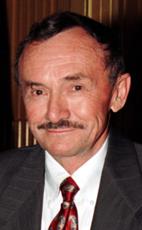Madam Speaker, I am pleased to briefly address Bill S-23, an act to amend the Carriage by Air Act.
This is routine legislation to amend the Carriage by Air Act and bring Canada into line with other countries in order to implement Montreal protocol No. 4 and the Guadalajara supplementary convention. These were themselves extensions of earlier agreements, the Warsaw convention of 1929, which is the basis of all rules governing international carriage by air, and The Hague protocol of 1995 which updated the Warsaw convention.
Among other things, the Montreal protocol simplifies and decreases cargo documentation and brings air billing into the 20th century by authorizing electronic transmission of documents. Unfortunately, it took 23 years to round up the requisite 30 national ratifications of the protocol in 1998, but at least the new rules are in place for the 21st century. It is now imperative that Canada get on board to help its carriers remain competitive.
The protocol also clarifies limits of carrier liability in order to avoid complex international conflict over the settlement of claims. A carrier will be responsible for damages even if it is not overtly negligent, but on the other hand, it cannot be assessed for damages beyond a mandated maximum even in the event of gross negligence. Thus both shipper and carrier are protected from catastrophic losses.
The Guadalajara convention extends the rules of the Warsaw convention to carriage performed by a carrier other than the one with whom the passenger or shipper actually entered into his contract. Why we are adopting this convention 38 years after its initiation is beyond me. The mills of the gods may turn slowly, but compared to the adoption of international rules with respect to air cargo, they are spinning wildly. In any event the bill is now before us and I urge the House to pass it without further ado.
My only serious problem with this legislation derives from its origin down the hall in what, because we are not allowed to call it by its proper name, I generally refer to as hog hollow. Some members refer to it as the other place. The hon. member for Beauport—Montmorency—Côte-de-Beaupré—Île-d'Orléans refers to it as the other house. Perhaps outhouse would be more appropriate.
The Senate as currently constituted has no legitimacy and it is not supported by the people of Canada. Nobody elected it and although I would be the first to admit that it does include a few hard working and public spirited individuals, it is overflowing with defeated Liberal and Tory candidates, retired bagmen and other assorted political hacks. At the moment it even has a couple of convicted felons clutched to its bosom.
One might think that because I so thoroughly dislike the institution as currently constituted that I would share the view of those MPs including the Minister of Intergovernmental Affairs who at one time or another have called for its abolition. Not at all. The Fathers of Confederation created the institution for a good reason. That reason, although they referred to it as sober second thought, was really to protect the citizens of Canada from their own duly elected legislature.
Now that the House of Commons has degenerated into a rubber stamp for an elected dictatorship, we need an effective Senate more than we ever did. Right now it is not protecting anybody. Why not? Because its appointed Liberal majority has become a mere extension of the PMO, a yes sir, of course sir institution, as malleable and ineffective as the Liberal backbench.
The answer to the problem is not to precipitously trash the institution. The answer is to fix it. The ideal Senate would be a triple E Senate, elected, effective and equal. This is a concept I heartily endorse. I realize there are barriers to getting such an institution and that these barriers are formidable since this would require a major constitutional amendment requiring the consent of all provinces. But reform can proceed as it did in the U.S.A., incrementally.
The United States did not always elect its senators. As a matter a fact the first state to do so was the state of Oregon around the turn of the century. Once it set the precedent, the idea caught fire. It was only about a decade before all of the then lower mainland states had fallen into line.
One E, effective, already exists in theory in the Canadian Senate because the Senate has great power under our constitution. However, it is not generally exercised because of the institution's illegitimacy.
The second E, elected, requires no change other than a change in the heart of the Prime Minister. We have already had one highly respected elected senator, the late Stan Waters. We have right now revved up and ready to come to Ottawa two Alberta senators in waiting who were elected at large by the electors of the entire province of Alberta, Mr. Ted Morton and Mr. Burt Brown. However, the government of today refuses to recognize the wishes and desires of the people of Alberta and those two senators, even though senators—

